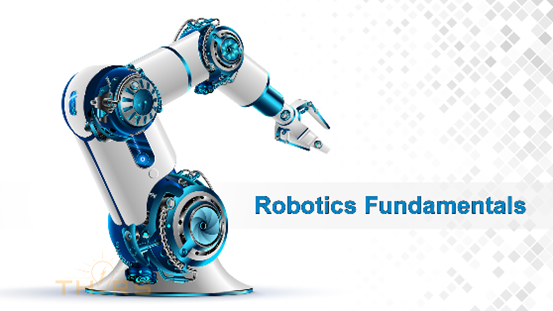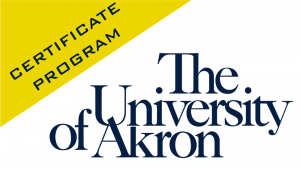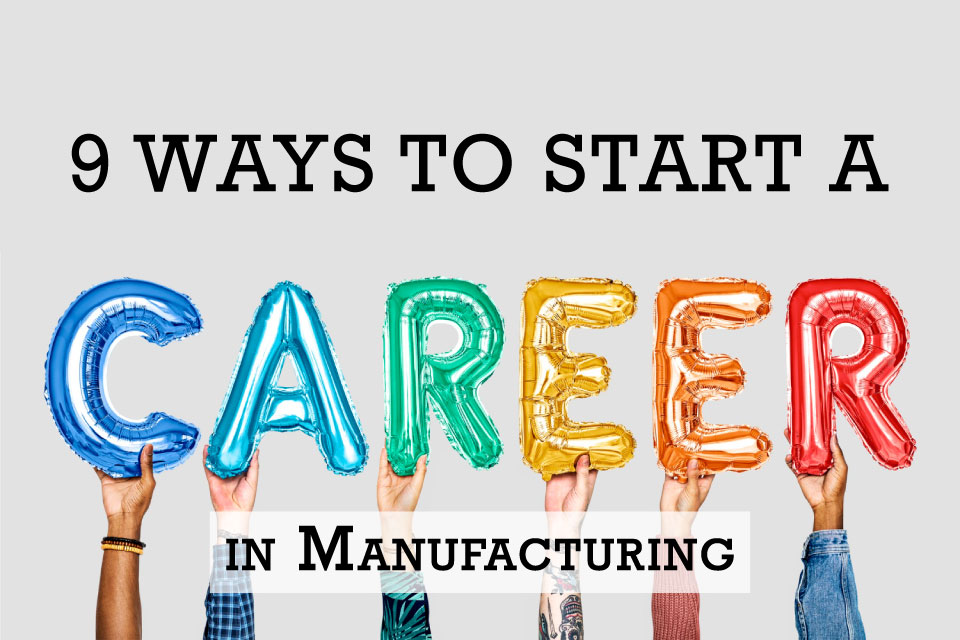How do you start a career in manufacturing?
Senthil Kumar, the founder of THORS, remembers his early days and the challenges he faced as a new engineer. He is passionate about capturing experiential knowledge from the minds of experts and making it readily available to all.
"After I graduated and joined the manufacturing industry, I found that I really knew very little about manufacturing. My first manufacturing job was in a forge shop and the person who had the experiential knowledge was the plant manager. It was very difficult to get his time and attention, and he had more important things on his agenda than to teach me. [This is] why I started THORS; to make a difference in the lives of future generations entering the manufacturing workforce."
Senthil Kumar, Founder | THORS LLC.
Here are 9 ways to start a career in manufacturing.
1. Network and get some experience.
Ask if you can shadow someone to see what they do all day if their job sounds interesting. Get a summer job or an internship that will give you a taste of the manufacturing environment. If you are interested in robotics, find a manufacturing plant that uses robots in assembly. Even if the robot is doing the job, someone has to monitor, program, and maintain the robot’s functions.
See what that is like. Check out our robotics fundamentals course here.

2. Seek out technical courses.
If you are still in high school, find out more about the technical classes they offer or check out your local trade school or career center. If you are beyond high school, many of those same locations offer evening classes to help adults further their careers. These courses can help you land a job, or help you narrow down the next steps you’d like to take.
At THORS we have a range of courses in many different industries. Review our course library here.
“I didn’t know what I wanted to do after high school, so I enrolled in my county’s career center during my junior and senior years of high school in a program called Engineering Technologies and Design. I got a good overview of many engineering career choices while earning an OSHA 10 certification and becoming proficient in CAD and other 3D modeling programs. I also learned to 3D print, create circuits, and prototype a robotic product. This helped me land a summer job doing CAD drawings, and now I am learning 3D modeling and prototyping. I am already far ahead of the rest of the class because of my career center experience.”
Jessica, Local Career Center Graduate | College Sophomore
3. Earn certifications or licenses.
These can be industry-specific and recognized by many organizations and companies, such as an OSHA certification. You can also enroll in programs that show your willingness to learn and grow your skills and experience, such as THORS’ Certificate of Completion program in partnership with The University of Akron.
At THORS we offer a certificate of completion program in partnership with the University of Akron.

4. Earn microcredentials.
Often your work skills are not easily documented on a resume. Do you know how to run a CNC machine? Are you familiar with machining processes? Microcredentials are a digital way to display the knowledge you have gained. This mode of recognizing competency in workforce development can go a long way in demonstrating skills to a potential employer.
At THORS, each course earns a certificate of completion that you can post on your profile page or print out. A certificate you’ve earned after taking a THORS course is a great addition to your job resume.
5. Check your soft skills.
How do you work in team situations? What is your attention to detail? Do you consider yourself to be a good problem-solver? Clean up your resume and your interview skills and check your mindset. Punctuality, reliability, willingness to learn, and a positive attitude go a long way.
Take a look at our course, Understand Customer Personality Styles to Help You Sell More Effectively, and see how your people skills can help you sell more effectively. Think you are not a salesperson? Think again. An interview is presenting yourself in much the same way a sale is conducted.

6. Assess your technical aptitude.
You may need to brush up on math concepts, such as measurements, or familiarize yourself with engineering drawings. Some of these basic skills can not only help you on the job but these skills can help you land the job.
Get a preview of our measurement math course here.
Get a preview of our Engineering Drawings Fundamentals course here.
7. Check if your on-the-job experience can earn you college credit.
Did you know that many colleges allow you to earn credits based on work experience or training programs, studying independently, volunteering or community service, and even military training experience? Inquire at any advising office to see if they offer PLA, or Prior Learning Assessment, or CPL, or Credit for Prior Learning, and you may qualify for college credits.
8. Decide if you need to further your education.
Some companies will do on-the-job training, and some companies will invest in your education. There may be an apprenticeship opportunity, or even a college reimbursement program. Completing your high school diploma or the equivalent is a big benefit, qualifying you for many entry-level jobs such as production line work, maintenance and repair, even sales or office jobs. Taking the next step in completing either a 2-year or 4-year degree can really boost your earning potential.
If you didn’t follow the college path, no problem. Here is a great source to see the growth and earning potential for careers that don’t require a college degree.
9. Remember to seek knowledge.
8. The most important thing to remember is to seek knowledge – gain an understanding of the industry, the job, the process, and how you can fit in. THORS eLearning Solutions can help you on your path toward starting a career in manufacturing.



